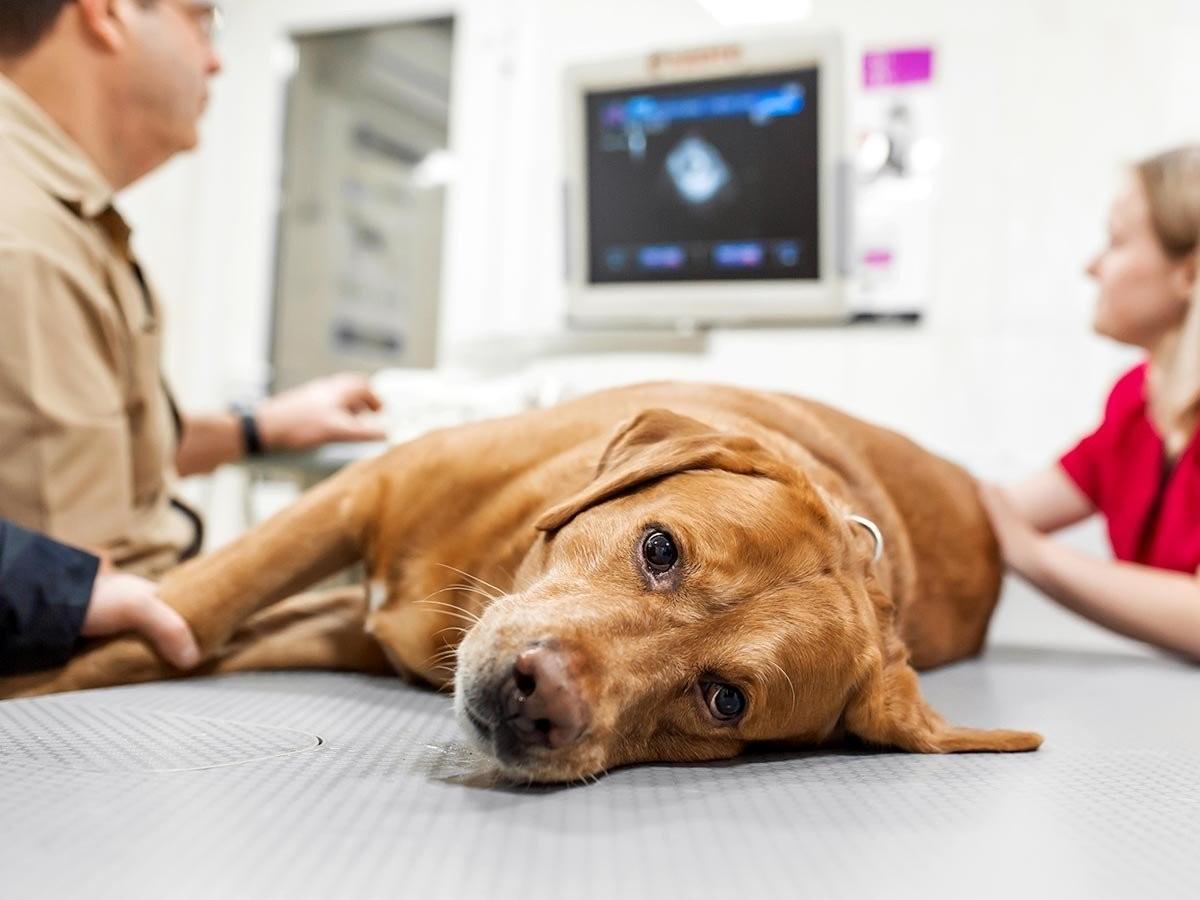Ventricular septal defect (VSD) is a congenital heart defect that affects dogs. This condition can impact a dog's quality of life and, in severe cases, can be fatal. Understanding the causes, symptoms, and treatment options is crucial for any dog owner whose pet has been diagnosed with VSD.
Understanding Ventricular Septal Defect
The heart is divided into four chambers: two atria and two ventricles. A wall, or septum, separates the left and right ventricles. In dogs with VSD, a hole exists in this septum, allowing blood to flow between the two ventricles. This abnormal blood flow can lead to complications, as oxygenated blood from the left ventricle mixes with deoxygenated blood from the right. This forces the heart to work harder, potentially leading to heart failure.
Causes & Risk Factors
Congenital Defect: VSD is present at birth and is thought to have a genetic component, although the exact cause is often unknown.
Breed Predisposition: English Bulldogs and Keeshonds have a higher risk of VSD, with an autosomal recessive inheritance pattern.
Sporadic Occurrence: VSD can occur in any breed, with no identifiable family history.
Recognizing the Symptoms
Heart Murmur: Often the only symptom, especially in young puppies. The murmur is typically loud and may be detected during a routine veterinary exam.
Read more: Does Pet Insurance Cover Heart Murmurs?
Heart Failure Symptoms:
Decreased energy and exercise intolerance
Weight loss and loss of appetite
Coughing and difficulty breathing
Pale gums
Increased or irregular heart rate
Fainting
In more severe cases or as the dog ages, symptoms of heart failure may develop:
Diagnosis & Treatment
If a heart murmur is detected, your vet will likely recommend further testing, including:
Chest X-rays: To assess heart size and check for signs of congestive heart failure.
Echocardiogram: An ultrasound of the heart to visualize the defect and blood flow.
Treatment Options
The treatment approach depends on the severity of the VSD and the dog's symptoms.
Small VSDs: Many small VSDs close on their own within the first year of life and require no treatment.
Large VSDs:
Medication: To manage heart failure symptoms, such as diuretics and medications to improve heart function.
Surgery:
Pulmonary Artery Banding: A less invasive procedure to reduce blood flow to the lungs and decrease pressure on the heart.
Open-Heart Surgery: A complex procedure to repair the hole in the septum, typically only performed at specialized centers.
In severe cases where medication is ineffective, surgical options may be considered, including:
Living with VSD
For dogs with VSD, ongoing management and monitoring are essential.
Regular Veterinary Visits: Annual check-ups and imaging tests help track the condition and assess heart function.
Lifestyle Adjustments: Your vet may recommend exercise restrictions, a low-sodium diet, and weight management to reduce stress on the heart.
Medication: Lifelong medication may be necessary for dogs with heart failure symptoms.
How Long Can a Dog Live with VSD?
The lifespan of a dog with VSD largely depends on the size and location of the defect. Many dogs with small VSDs experience no significant health problems and can live a normal lifespan. However, larger defects can lead to heart failure and shorten a dog's life expectancy. With proper management and treatment, dogs with VSD can still enjoy a good quality of life for several years3.
What is a Septal Defect in a Dog's Heart?
A septal defect refers to a hole in the wall (septum) that divides the heart's chambers. In VSD, the hole is between the two lower chambers (ventricles). This allows blood to mix between the two sides, leading to inefficient oxygen delivery and potential heart strain2.
What Breed of Dog has VSD?
While VSD can occur in any breed, certain breeds like English Bulldogs, English Springer Spaniels, West Highland White Terriers, and Keeshonds are known to have a higher predisposition4.
The Bottom Line
While VSD can be a serious condition, many dogs live happy and fulfilling lives with proper management. Early detection, accurate diagnosis, and appropriate treatment are key to ensuring the best possible outcome for your furry friend. If you suspect your dog may have a heart problem, consult your veterinarian promptly for evaluation and guidance.
About the Author
Gina Melendez works for the Eagle Glen Veterinary Clinic, and Dr. Hon Seok Jeong reviewed this post. Eagle Glen Veterinary Clinic has been serving pets in LA since 1988! The vets and technicians have a passion for pet care and the skill to give excellent service! Visit https://www.instagram.com/eagleglen.vc/ or https://eagleglenvets.com/index.cfm for more.

With 10 years of experience as a pet parent, I aim to empower pet owners with insights into pet insurance and maintaining their pet's well-being. I aspire to be a trusted source, combining knowledge with a commitment to the welfare of our beloved pets.

Eagle Glen Veterinary Clinic has been serving pets in LA since 1988! The vets and technicians have a passion for pet care and the skill to give excellent service! Visit https://www.instagram.com/eagleglen.vc/ or https://eagleglenvets.com/index.cfm for more.
Ventricular Septal Defect (Puppies) in Dogs - Symptoms, Causes, Diagnosis, Treatment, Recovery, Management, Cost. (n.d.). In wagwalking.com. Retrieved August 22, 2024, from https://wagwalking.com/condition/ventricular-septal-defect-puppies
Ventricular septal defect (VSD). (n.d.). In University of Prince Edward Island. Retrieved August 22, 2024, from https://cidd.discoveryspace.ca/disorder/ventricular-septal-defect-vsd.html
Ventricular septal defect (VSD) - Bishops Stortford Vets. (2018). https://www.stortvet.com/ventricular-septal-defect-vsd-2-2/












